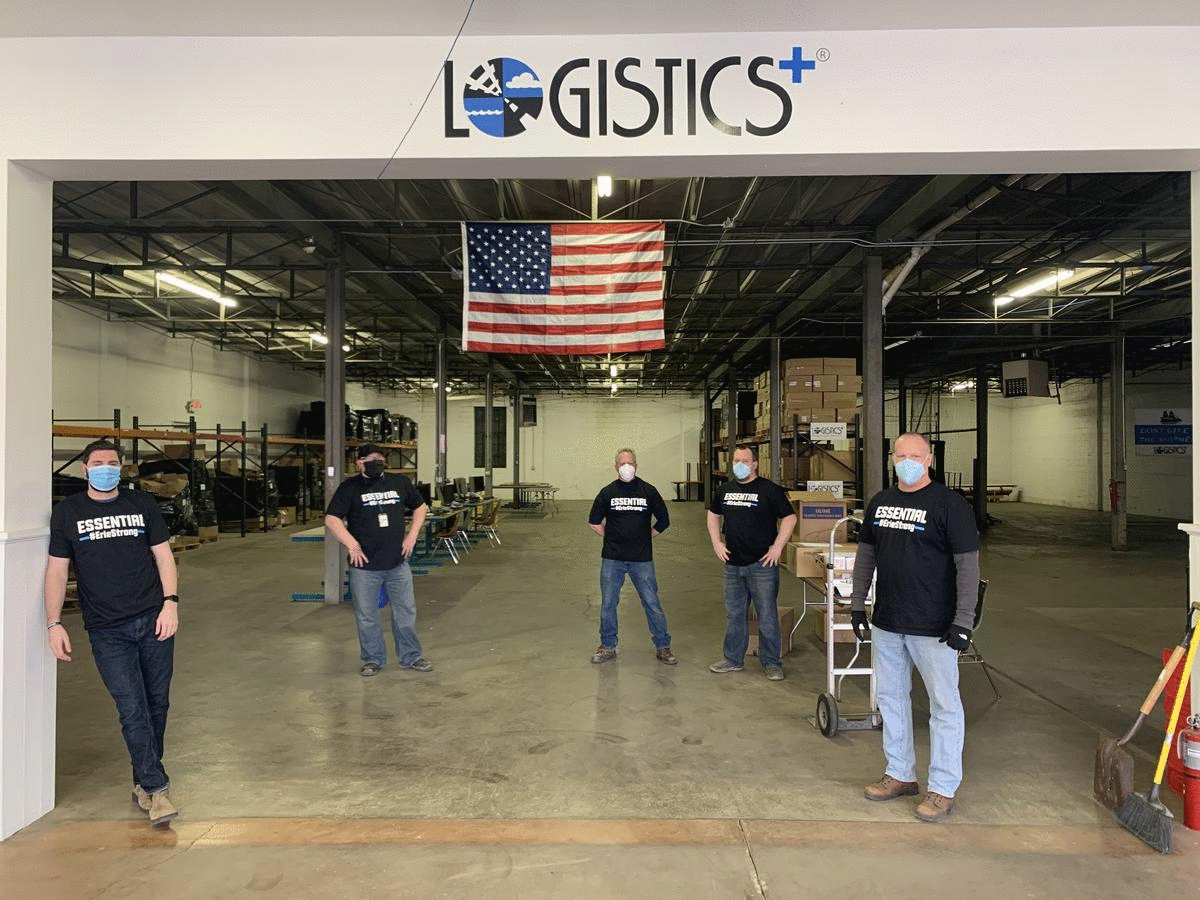
by logisticsplus | Jul 17, 2020 | News

Over the past several months, the Logistics Plus Medical team has sourced and delivered over 10 million pieces of PPE around the world, including KN95 masks, disposable surgical masks, gloves, face shields, goggles, hand sanitizers, thermometers, and air purifiers (including a 1 million face shield order for a state procurement agency). As a part of our ongoing efforts to help fight the battle against Covid-19, we are proud that we have been able to leverage our sourcing, warehousing, and fulfillment expertise to help make a difference. As evidenced by the testimonials below, we have many happy and satisfied customers.
PPE Testimonials
 Northern Nevada Center for Independent Living
Northern Nevada Center for Independent Living
“We were having quite a challenge finding a vendor who could fulfill our PPE needs quickly. Fortunately, Logistics Plus was suggested. Logistics Plus has been able to fulfill our orders quickly and accurately. We also appreciate the flexibility they have. It’s a great feeling to know that we have our PPE vendor identified. We can feel confident knowing we can be responsive to our community’s PPE needs. Thank you Logistics Plus!”
St. Martin Center
“We’re so grateful for your generous provision of masks for us to distribute to the homeless through our Bishop’s Breakfast program. Logistics Plus has been an amazing support during this pandemic, and this is just one more example. Because of this gift, the homeless population will have more protection from COVID-19. We appreciate your kindness in providing these masks!”
Large Regional Health Care Provider Based in the State of Maryland
“Organizations talk about building business partnerships, Logistics Plus puts into practice everything other organizations speak of. The team is accessible, reliable, and looks out for their customers’ best intentions. When I interact with them it is like an extension of my own company. They have the expertise and the know-how to excel in these unprecedented times, hitting every deadline and milestone we agreed to along the way. They are true HealthCare Heroes!”
Regional Hospital/Medical Center
“Thank you very much. This is a really big help. You have met our PPE needs a couple of times now.
We have COVID patients and provide coverage to a wide multi-county service area. While we are active, we have not been designated as a hot spot. While that is good, the air bridge, the state, and the fed do not help us out. That has resulted in us being very challenged. We will utilize you as we need and can. Don’t know how you pulled this N95 off, but find some more please.”
Pennsylvania-Based Employee
“Just took delivery of 10 surgical masks from your website. Easy transaction!”
Utility Equipment Services Company
“I know you that you transport gigantic pressurized air tanks, locomotives, and tons of other huge equipment from one part of the world to the other; but those 250 face masks, weighing only what, 2 lbs in total? Seriously, I cannot thank you all enough for delivering our state-mandated masks right on time. We were closing at 3:30 pm last Friday, and Julie made it here at 3:28, and it was snowing. We did have some other options, but the other vendors are still waiting for the masks to make their way into their own warehouses, let alone it delivering to us. Witnessing your seriousness and kindness was great too. Thank you all and best regards!”
Voices for Independence
“I would like to thank everyone at Logistics Plus for the two cases of surgical masks. As stated in previous communications, those masks will be distributed to our dedicated and hardworking caregivers who continue to serve individuals with disabilities in the community. Every day our caregivers provide hands-on support to consumers in need of assistance with their daily living activities. These surgical masks will offer increased safety to both our caregivers, who are providing an invaluable service throughout this pandemic and the consumers they provide services too. Logistics Plus is a valuable asset to our community, and we greatly appreciate you.”
Wesbury Retirement Community
“Please tell Jim that staff is starting to wear the masks that Wesbury bought from LP and they are raving about them. They are great! Tell him – thank you.”

by logisticsplus | Jul 16, 2020 | Testimonials

We were having quite a challenge finding a vendor who could fulfill our PPE needs quickly. Fortunately Logistics Plus was suggested. Logistics Plus has been able to fulfill our orders quickly and accurately. We also appreciate the flexibility they have. It’s a great feeling to know that we have our PPE vendor identified. We are able to feel confident knowing we have the ability to be responsive to our community’s PPE needs. Thank you Logistics Plus!
-Lisa Bonie, Executive Director

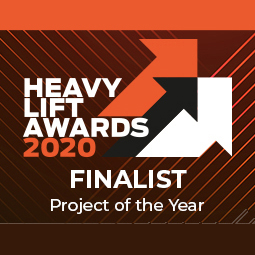
by logisticsplus | Jul 14, 2020 | News
 Logistics Plus has been selected as a Project of the Year finalist for the 2020 Heavy Lift Awards presented by Heavy Lift & Project Forwarding International (HLPI) magazine. The Project of the Year award is based on the following three criteria:
Logistics Plus has been selected as a Project of the Year finalist for the 2020 Heavy Lift Awards presented by Heavy Lift & Project Forwarding International (HLPI) magazine. The Project of the Year award is based on the following three criteria:
- Unique techniques and innovative approaches to overcome project challenges
- The use of multiple transport modes
- The employment of advanced equipment and/or technology
Due to the COVID-19 pandemic, the 2020 Heavy Lift Awards will be hosted as a virtual event this year. The awards will now begin on October 5th and run until October 21st with 13 days dedicated to the different award categories. As the leading publication reporting on the heavy lift, break bulk, and project cargo industry, HLPFI has established the Heavy Lift Awards to recognize and reward excellence for complex logistics, transportation, and engineering projects around the world.
Click the flyer image below to view the complete Logistics Plus award entry:
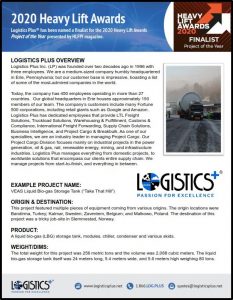


by logisticsplus | Jul 13, 2020 | News
 Just because you have filled out the paperwork, packed your goods, and arranged a pickup, you can’t always expect your shipment to run smoothly. An important factor in the success of your shipment relies on the details and specs you provide on the Bill of Lading (BOL).
Just because you have filled out the paperwork, packed your goods, and arranged a pickup, you can’t always expect your shipment to run smoothly. An important factor in the success of your shipment relies on the details and specs you provide on the Bill of Lading (BOL).
One potential barrier to a smooth shipment is a freight adjustment. This occurs when the carrier has to correct inaccurate shipment weights or dimensions, resulting in additional charges for the shipper. When a carrier weighs a shipment at its facility, it receives a Weight Inspection Certificate. This document is the official weight for your shipment and it serves as the basis for any weight adjustment.
So how do you make sure that you provide accurate shipping weights to avoid additional charges?
- Use a certified scale and test it before each use
- Weigh the entire shipment, not individual packages
- Be sure to include the packaging and the pallet in your listed weight (this is a common mistake)
- Take a photograph of the scale as proof of weight
- Call Logistics Plus if you have any additional questions
Additionally, with the NMFC now designating more commodities for density-based classifications, preparing an accurate BOL is as important as ever. If you note the wrong weight for a density-based product on your bill of lading, there is a good chance that the LTL carrier will re-weigh your shipment and charge you the higher rate using the same freight class you designated on your BOL rather than adjusting the freight class according to the new weight and dimensions. Specifically, this is how one carrier has worded their new rules tariff item specific to this situation: “In the case where the weight is changed on a shipment that is a density-based item in NMFC, the freight classification on the original bill of lading will be used unless the shipper or consignee can produce irrefutable supporting documentation showing clear evidence of the LxWxH and corresponding weight of each handling unit of the shipment.”
The freight experts at Logistics Plus are happy to help you with any questions or issues regarding freight characteristics. Contact us using the button below or email us at nadops@logisticplus.net if you have any additional questions.


by logisticsplus | Jul 8, 2020 | News
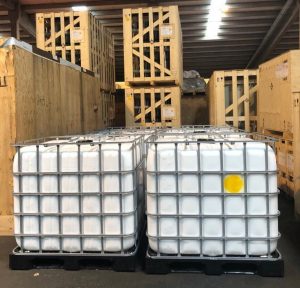 The Logistics Plus Bremen team is proud to have successfully delivered the first shipments for the latest Siemens electricity transmission project in Iraq. In total, Logistics Plus handled 9 power transformers and accessories from the transformer factory site to the port of export.
The Logistics Plus Bremen team is proud to have successfully delivered the first shipments for the latest Siemens electricity transmission project in Iraq. In total, Logistics Plus handled 9 power transformers and accessories from the transformer factory site to the port of export.
Siemens is currently building thirteen 132/33kV substations and delivering 35 power transformers as part of their goal for the electrification of Iraq. The goal of this project is to invigorate the country’s electricity transmission and distribution network to support the community and its power grid while leading to sustainable economic development.
Pictures of the transformers and accessories can be seen below.
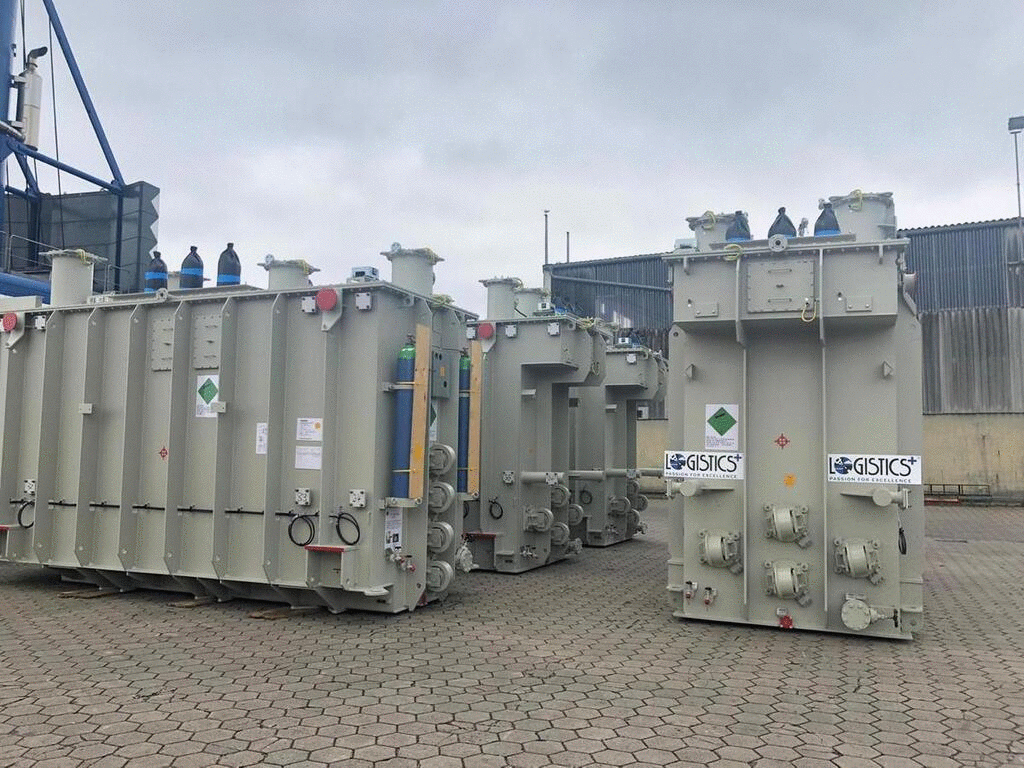


 Northern Nevada Center for Independent Living
Northern Nevada Center for Independent Living



 Logistics Plus has been selected as a
Logistics Plus has been selected as a 


 Just because you have filled out the paperwork, packed your goods, and arranged a pickup, you can’t always expect your shipment to run smoothly. An important factor in the success of your shipment relies on the details and specs you provide on the
Just because you have filled out the paperwork, packed your goods, and arranged a pickup, you can’t always expect your shipment to run smoothly. An important factor in the success of your shipment relies on the details and specs you provide on the 

 The Logistics Plus
The Logistics Plus 